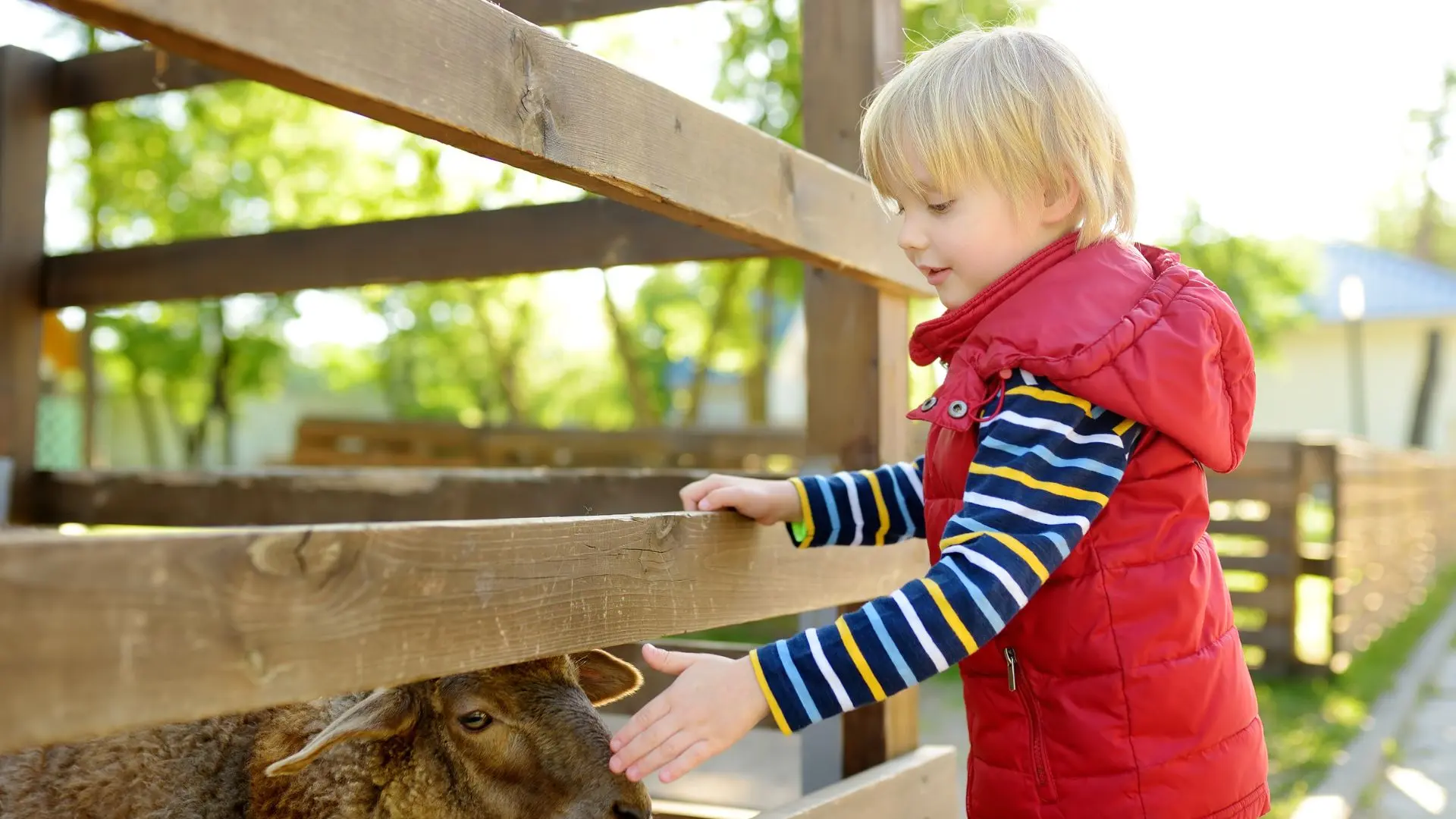Unschooling: No set subjects, no traditional lessons. Are kids thriving or struggling with this self-directed learning trend? Find out in our latest blog post.

You’ve probably heard of homeschooling, but have you considered unschooling? This unconventional method is gaining popularity and raising questions among parents everywhere. While unschooling may sound radical to some, it’s a valid and impactful form of education for many families around the world.
We’ll discuss what unschooling really is, how it differs from traditional schooling, the laws governing it, how to get started, and the right approach to take. By the end, you’ll have a clearer picture of whether unschooling could be the right fit for your family.
What is Unschooling?
At its core, unschooling is an educational philosophy that promotes child-led learning. Unlike traditional schooling or even structured homeschooling, unschooling allows children to learn through their natural curiosity rather than following a pre-determined curriculum. This method gives children the freedom to explore subjects at their own pace, guided by their own interests, passions, and real-world experiences.
The Core Philosophy
The fundamental principle of unschooling is that children are naturally curious and capable of learning what they need when given the freedom to explore. Rather than imposing structured lessons, unschooling parents provide resources, experiences, and guidance, allowing the child to direct their own learning. In unschooling, education happens organically — through daily life, interactions, and exploration — rather than through traditional textbooks or classroom methods.
Key Principles of Unschooling
- Child-Led Learning: The child decides what they want to learn and when.
- Learning through Experience: Real-world experiences (e.g., cooking, building, nature exploration) are the primary sources of learning.
- Freedom and Flexibility: There is no fixed schedule or curriculum, giving children the space to follow their natural learning rhythm.
- Parental Role as a Facilitator: Parents act as facilitators or guides, helping children find resources and explore their interests.
Unschooling challenges traditional education models by trusting children to learn naturally without the structure of a formal curriculum.
How Unschooling Differs from Traditional Schooling
One of the first things to understand about unschooling is how drastically it differs from traditional schooling models. While traditional education is built around a set curriculum, exams, and grade levels, unschooling takes a radically different approach.

No Set Curriculum vs. Structured Curriculum
In traditional schools, students follow a rigid curriculum, which is standardized across age groups. In unschooling, there’s no set curriculum. Children decide what interests them, and they pursue that knowledge as they see fit.
For example, if a child is fascinated by animals, their “science” might involve visiting zoos, reading books about wildlife, and watching nature documentaries — all because of their genuine interest, not because it’s on a syllabus.
Child-Directed Learning vs. Adult-Led Instruction
In unschooling, learning is entirely directed by the child. The parent acts as a guide, offering resources or suggestions, but the child is ultimately in control. In contrast, traditional education is typically adult-led, with teachers deciding what children should learn, when, and how.
Real-World Learning vs. Classroom Learning
In unschooling, learning comes from real-world experiences. Instead of sitting in a classroom, unschoolers engage in hands-on, practical activities. Learning can happen through gardening, cooking, travel, or simply asking questions during a nature walk. Traditional education, on the other hand, often confines learning to textbooks, classrooms, and abstract concepts.
Role of Parents in Unschooling
Parents play a very different role in unschooling compared to traditional schooling. They aren’t there to “teach” in the conventional sense. Instead, they serve as facilitators — providing resources, answering questions, and helping children find opportunities to explore their interests.
Unschooling Laws & Legal Considerations
While unschooling provides incredible freedom, it’s still important to understand the legalities surrounding it. The rules for unschooling differ from country to country, and even from state to state within countries like the U.S. It’s crucial to know what’s legally required before diving in.
Overview of Legal Requirements for Unschooling
In most countries, unschooling falls under homeschooling laws. This means you need to comply with homeschooling regulations, which can range from minimal oversight to strict monitoring, depending on where you live.
For example
- United States: Unschooling is legal but varies by state. Some states have stringent reporting requirements, while others are more relaxed. Parents must usually notify local authorities that they are homeschooling.
- United Kingdom: Unschooling is legal, but parents must ensure their child is receiving a full-time education suitable to their age and abilities.
- Canada: Homeschooling laws vary by province. Some require parents to follow specific guidelines, while others allow more freedom.
Compliance with Local Regulations
Most regions require parents to submit annual reports, create an education plan, or track their child’s learning in some way. While unschooling is child-led, you may still need to demonstrate that your child is “making progress” in their learning journey.
Resources for Legal Information
It’s always best to consult with organizations like the Home School Legal Defense Association (HSLDA), which provides detailed information on homeschooling laws and support for unschoolers.
How to Start Unschooling
Starting unschooling can feel intimidating at first, but with the right mindset and preparation, it can be a smooth and rewarding transition.
Step-by-Step Guide to Unschooling
- Understand the Philosophy: Before you dive in, it’s essential to fully understand what unschooling is and what it isn’t. Read books, join online forums, and talk to experienced unschoolers to get a sense of the lifestyle.
- Assess Your Child’s Learning Style: Every child learns differently. Observe your child’s natural interests and how they learn best. Are they visual learners? Do they prefer hands-on activities? Tailoring your approach will make the process easier.
- Prepare Your Environment: Create a learning-conducive environment at home. This doesn’t mean setting up a classroom but rather ensuring your child has access to resources like books, art supplies, and outdoor activities.
- Establish Routines: While unschooling is flexible, having a loose routine can provide structure. For example, you might dedicate mornings to exploring specific interests and afternoons for outdoor play or real-world learning experiences.
Importance of Flexibility and Patience
Unschooling isn’t about instant results. It requires patience and flexibility. You’ll likely need to shift your mindset from “results-driven” to “process-driven.” The journey is just as important as the destination in unschooling.
Role of the Parent in Unschooling
Parents are facilitators in the unschooling process. Rather than dictating lessons, they support their child’s curiosity by providing the tools and guidance needed to explore the world.
What Do Unschoolers Do Each Day?
So what exactly does an unschooling day look like? The beauty of unschooling is that no two days are the same.

A Typical Day in Unschooling
There is no “typical” day, but here’s an example:
- Morning: Your child may start the day exploring an interest in animals by reading books or watching documentaries.
- Afternoon: They might want to bake cookies, which turns into a lesson on measurements and fractions.
- Evening: Time spent outdoors exploring nature could lead to questions about ecosystems or weather patterns.
Examples of Child-Led Learning Activities
- Nature Walks: Learning about biology, ecosystems, and weather.
- Cooking: Understanding fractions, measurements, and chemistry.
- Art Projects: Developing creativity and fine motor skills.
- Building Projects: Learning physics and engineering concepts.
- Travel: Geography, culture, and language immersion.
Importance of Play and Unstructured Time
Unschoolers learn a lot through play and unstructured time. This allows their minds to wander, fostering creativity, problem-solving, and critical thinking skills.
Common Myths and Misconceptions About Unschooling
Unschooling has its fair share of critics and misconceptions. Here are some common myths.
Myth 1: Unschooling Means No Learning
Many assume that without a formal curriculum, no learning happens. In reality, unschooling is filled with learning — it just happens in a more organic, unstructured way.
Myth 2: Unschooling Creates Undisciplined Children
Some people believe that without structure, unschooling leads to undisciplined behavior. However, unschoolers often learn self-discipline because they are given the responsibility to manage their own learning.
Myth 3: Unschooling Doesn’t Prepare Kids for the Real World
On the contrary, unschooling mimics real-world learning more closely than traditional education. By engaging in practical, everyday tasks, unschoolers are often more prepared for real-world challenges.
The truth is, unschoolers have ample opportunities to socialize — through playgroups, community activities, sports, and more.
Challenges of Unschooling
Like any educational method, unschooling comes with its challenges.

Lack of Structure
Some parents and children may struggle with the lack of a set curriculum. It can be hard to let go of the traditional notion that learning must follow a strict plan.
Parent Involvement
Unschooling requires significant involvement from parents. You must be ready to invest time and effort into providing resources, opportunities, and guidance. This can be demanding, especially if you have other commitments or if you’re transitioning from a more structured educational environment. Balancing unschooling with daily responsibilities can be a juggling act.
Assessing Progress
Without standardized tests or formal assessments, measuring a child’s progress in unschooling can be challenging. Parents need to be observant and actively engage with their children to understand their learning journey. While unschooling focuses on natural learning, you might need to keep records or portfolios to satisfy any legal requirements or to reflect on the child’s growth over time.
Financial Considerations
While unschooling can be cost-effective compared to private schooling, it may still incur expenses, particularly for educational materials, field trips, or extracurricular activities. Additionally, some parents may choose to invest in specialized resources or classes to support their child’s interests, which can add up.
Is Unschooling Right for Your Family?
Determining whether unschooling is the right approach for your family involves assessing several factors.
Consider Your Child’s Personality and Learning Style
Unschooling is often best suited for children who are naturally curious, self-motivated, and enjoy exploring subjects at their own pace. If your child thrives in a structured environment or prefers more guidance, unschooling might require adjustments to fit their learning style.
Evaluate Your Family’s Lifestyle and Values
Unschooling works well in families who value flexibility, independence, and a hands-on approach to education. It requires a lifestyle that supports continuous learning through everyday activities and experiences. If your family values these aspects and is prepared for the commitment, unschooling could be a rewarding choice.
Assess Your Ability to Facilitate Learning
Consider whether you can actively support and guide your child’s interests and provide the necessary resources. Your ability to create an enriching environment and your willingness to embrace an unconventional approach is crucial for successful unschooling.
Conclusion
Unschooling represents a unique and flexible educational philosophy that empowers children to take charge of their own learning. It contrasts sharply with traditional schooling by focusing on child-led exploration rather than structured curricula. By understanding the principles of unschooling, familiarizing yourself with the legal requirements, and preparing to create a supportive learning environment, you can determine whether this approach fits your family’s educational goals.
While unschooling presents challenges, it also offers significant rewards. It fosters a love of learning, encourages independence, and builds practical skills through real-world experiences. If you’re ready to embrace a more flexible, child-centered approach to education, unschooling could be the key to unlocking your child’s potential.
As with any educational method, it’s essential to research thoroughly, consider your family’s needs, and be prepared to adapt as necessary. Unschooling might be the perfect fit for your family’s educational journey, providing a dynamic and personalized learning experience that aligns with your values and your child’s unique learning style.
Are you considering unschooling for your child? We’d love to hear your thoughts and experiences, so feel free to share them in the comments.
We’d love to hear how unschooling has worked for you or any questions you have about this educational approach.
You may also be interested in : 35 Fun STEAM And STEM Activities for Homeschooling Kids